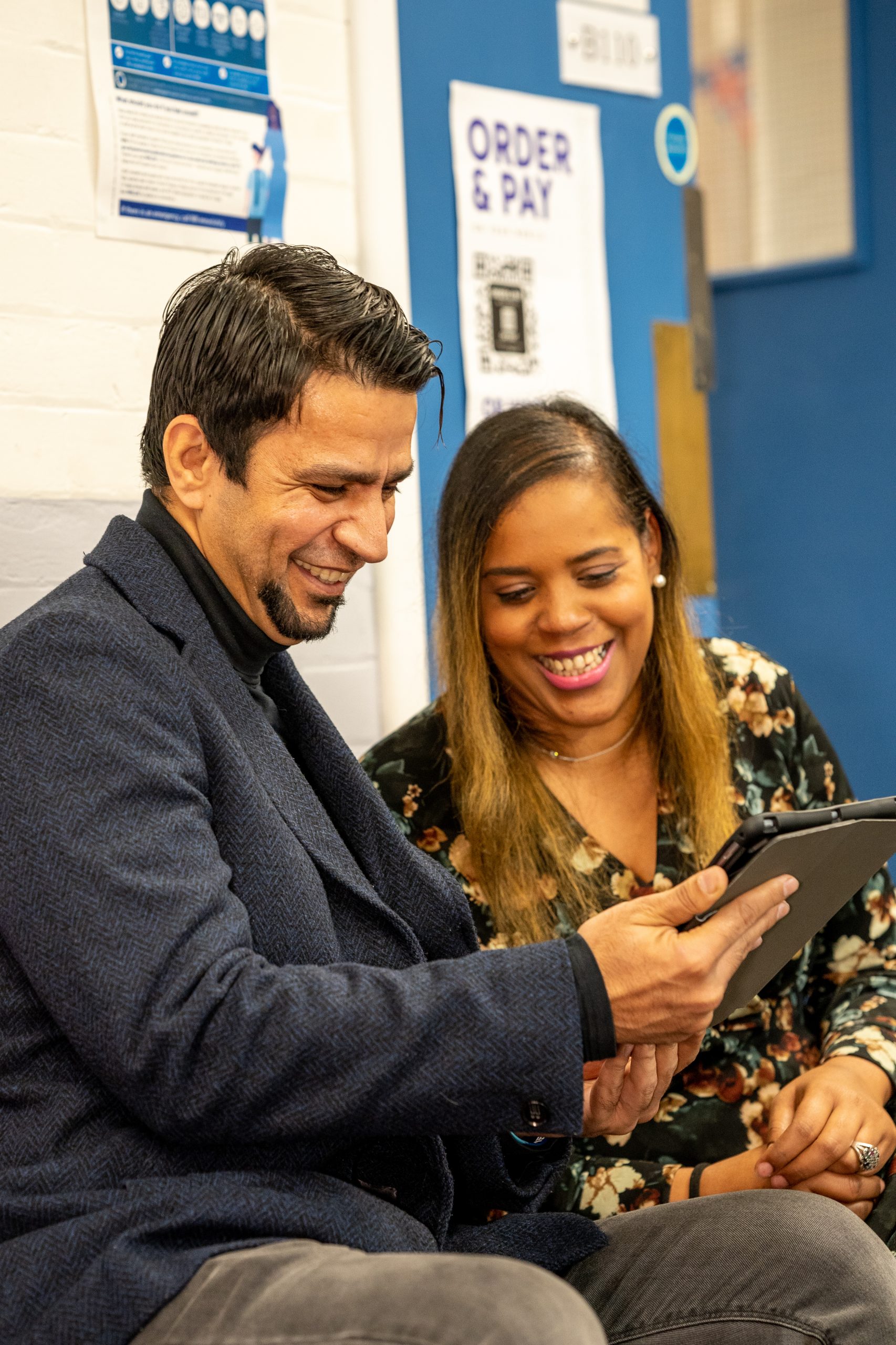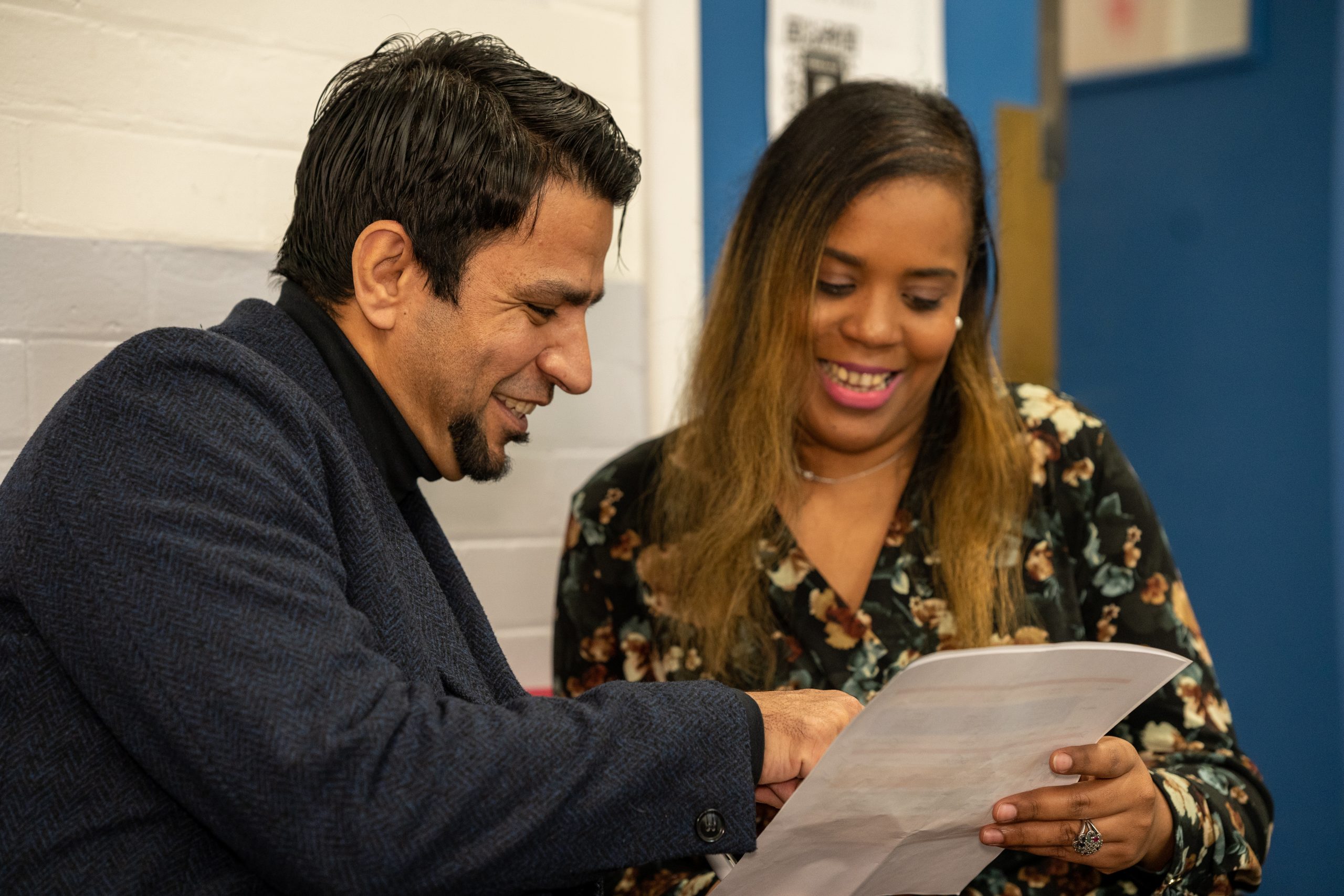Staff Support
Academic and professional services staff play a crucial role in the life of the College. We are a small, busy, caring community committed to the DGHE Centre ‘Values’: a diverse, inclusive and professional academic community that respects individuals and enables them to strive for success. We understand that sometimes staff may need some support to thrive in life. We offer an excellent Employee Assistance Support Programme (EAP) via ‘Health Aware’, a leading provider of EAP services in the UK.
It is available 24/7, 365 days a year for staff (and their immediate dependents), supporting general wellbeing and mental health. Financial, legal, and medical advice and other family/work matters are available via the Helpline for you and your dependents.
Staff may access CBT counselling via the EAP.
An App enhances the EAP, ‘WISDOM’, also enabled by video-calling.
Additionally, all staff can access TogetherAll, a 24/7, 365, anonymous peer-to-peer site supporting mental health available to all staff and students; a DGHE email address is needed to access it.
Benefits and Wellbeing
Core benefits/services/facilities on offer:
- Generous annual leave of 25 days plus college closure days plus public holidays
- Contributory pension scheme
- Salary sacrifice cycle to work scheme
- Interest-free travel season ticket loan
- Free eye tests and contribution to cost of frames
- A range of staff training and development activities
- Other benefits as listed below.
These include:
Health and Wellbeing:
- Employee Assistance Programme (EAP) via ‘Health Assured’ : available 24/7, 365 days a year for staff (and their immediate dependents) supporting general wellbeing and mental health. Free Financial, Legal, Medical advice and other family/work matters are available via the Helpline for staff and their dependents – including CBT counselling
- Wisdom: wellbeing and wellness App (free via EAP)
- TogetherAll: a 24/7, 365, anonymous peer-to-peer site supporting mental health, available to all staff using their DGHE email address
- Access to Work(AtW): support if you have a disability or health condition. You can speak with the staff adviser confidentially if you need advice/support in applying for the AtW, or want to know more about it.
- Learning Differences/SpLD (dyslexia/dyspraxia/ADD/ADHD): Staff are offered free, confidential screening for learning differences with follow-up advice and guidance on next steps. This includes screening for Visual Stressand guidance about using AtW to obtain support
- Canteen and staff coffee rooms on-site
- Gym on-site
- Quiet Room
- Regular free staff socials
- Fabulous location in the heart of the City and historical Roman London, Tower of London and The Gherkin just a 5 minute-walk
- Easy commuting: Liverpool St, Fenchurch St, Moorgate train stations less than 10 mins walk, Aldgate underground half a minute walk, Aldgate East and Tower Hill underground 10 mins walk, as is Tower Gateway DLR, and the area has many excellent bus services within 2 minute-walk.
Financial Benefits:
- Ride2Work SchemeDGHE works in partnership with https://www.bike2workscheme.co.uk/ offering the Government approved ‘Ride2Work Scheme’. The scheme recognises that commuting to work by bicycle will save you money in addition to helping you become healthier and happier
- Interest-free travel season ticket loan
- TOTUM cards (formerly NUS Extra): staff are eligible to apply for this using their DGHE email address – access to many discounts, including 10% shopping at Co-op
- Eligibility for Costco membership
- Apples Product Discount: Anybody who works in the education sector qualifies for a discount on Apple computers. It’s not just limited to students, teachers and lecturers, but also covers all other staff members. Offers appear on a regular basis.
Development and Training:
- CPD opportunities (Continuing Professional Development): support for relevant training and conferences, including financial and mentoring support for Academic staff applying forAdvance HE (Higher Education Academy) Fellowships
- DGHE Partner Institutions: academic staff teaching on courses with our partner institutions (University of Gloucestershire and Buckingham New University) are able to access their own in-house training programmes free
- E-Learning resources, free on the VLE (Virtual Learning Environment) around wellbeing and other topics of interest common in higher education environments
Disability Support
Dyslexia, Disability & Health Support
Contact: disability@dghe.ac.uk
Telephone: +44 (7718 612 618) Text/leave a message with contact details
Website: Disability Support
Advice and Wellbeing Service (AWS) for staff and students
David Game HE wants to create a truly inclusive and caring learning environment for all staff and students and welcomes applications from people with disabilities. If you have a disability, learning difference or a long-term health condition, we will do everything we reasonably can to make sure you have equal opportunities to work/learn and take part in all aspects of college life.
Disclosing a disability or health condition will not harm your application, admission, or any time while you work at the College.
Disclosure can be a positive life-changing experience and ensures you will get the right support to achieve your full potential during your time here.
Staff and working students who are eligible for the Access to Work (AtW) government scheme can ask for advice and guidance on the process.
UK students may be eligible for the Disabled Students Allowance (DSA) government scheme. Those not eligible for this are supported in-house.
For students who are working as well as studying, we can assist with confidential advice and guidance in accessing support and dealing with any discrimination in the workplace.
We strongly recommend that you get in touch with us as soon as possible before you arrive at DGHE to let us know about your specific disability and support needs.
Any information provided will be kept strictly confidential and will only be used to support you with your work/studies.
The Advice and Wellbeing Service (AWS) team coordinates the support.
We look forward to meeting you!
Please do let us know if there is anything we can do to improve the information in this guide, on the website and on the VLE.
The Equality Act: what does it mean to you?
The Equality Act (2010) defines disability as a physical or mental impairment that has a substantial and long-term adverse effect on the ability to carry out normal day-to-day activities, where the long term is considered to be 12 months or more. We offer a variety of support in line with the Equality Act (2010).
This includes providing reasonable adjustments, along with advice and guidance, to ensure that staff and students are able to achieve their full potential.
We support a wide range of conditions (please note that this list is not exhaustive):
Specific Learning Differences (SpLD) (e.g. Dyslexia, Dyspraxia, Dyscalculia, Dysgraphia, AD(H)D); Blind or visual impairment; Deaf or hard of hearing; Mobility difficulties (e.g. wheelchair users); Long-term medical conditions (e.g. Arthritis, Chronic Fatigue Syndrome/ME, Sickle Cell Anaemia, Epilepsy); Autistic spectrum conditions (e.g. Asperger’s Syndrome); Mental health difficulties (e.g. anxiety, depression, eating disorders, Bipolar).
How accessible is the building?
Facilities and Building Access: information on the Disability Support for Students page of the website.
Take a Virtual Tour of the building.
Parking: There is no parking immediately outside the college, but some in the adjoining streets. Disabled Parking in the City of London.
Overview - What’s available in the college?
Extensive information, advice and guidance are available in the Advice and Wellbeing Services (AWS) section on the main website and Virtual Learning Environment (VLE-Moodle), including online training for staff and students regarding learning differences, disabilities and long-term medical conditions.
Appointments: can be booked with Disability for a confidential discussion about yourself or a colleague/student and how the college can best support your/their needs. Appointments may be in person, on the phone or via Zoom.
The VLE (Moodle): has accessibility features such as a listening feature and the ability to change the font to a dyslexia-friendly one/change the screen’s size and background colour.
Dyslexia screening – free: free screenings for Dyslexia are offered to staff and students using ‘QuickScreen’. For further information, contact Disability.
Health Aware: available 24/7, 365 days a year for staff and students (and their immediate dependents) supporting general wellbeing and mental health – including advice on financial, legal, medical, dependents and other family and work matters.
An App: ‘Wisdom’ via Health Assured 24/7, 365 days a year.
CBT Counselling: for staff and students via Health Aware.
TogetherAll: a 24/7, 365, anonymous peer-to-peer site supporting mental health, available to all staff and students; a DGHE email address is needed to access it.
Library resources: A dedicated AWS section in the Library for staff and students to use, stocked with a variety of reference and self-help books for day-to-day life, work and study support.
The Librarian is happy to help you access any books that you need from the library.
Quiet/Prayer room: There are several quiet spaces dotted around the building and a dedicated Quiet/Prayer room should you need to take some time out during the day.
Useful Links
Accessibility
- Facilities and Building Access at DGHE
- Take a Virtual Tour of the building
- Disabled Parking in the City of London
Disability Equality
Learning Differences (SpLD)
- BDA British Dyslexia Association
- ASD (Autism Spectrum Disorder)
- ADHD Attention Deficit Hyperactive Disorder
- DISCALCULIA and maths difficulties
- DYSPRAXIA (DCD – developmental co-ordination disorder)
- Visual Stress/ Meares-Irlens Syndrome
Mental Health
- A-Z Mental Health information and advice
- NHS Mental Health Conditions information and advice
- Anxiety and Panic Attacks
- Anxiety, Fear and Panic symptoms
- PTSD post-traumatic stress disorder
Hearing Loss
Sight Loss
(NB: the list is not exhaustive)






